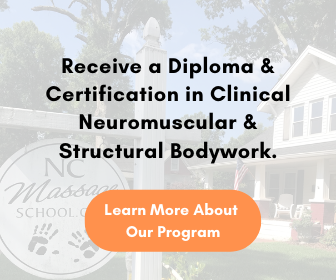Deep Tissue Massage Explained
When injuries and muscle strain slow people down, many turn to deep tissue massage for pain relief. The therapeutic form of massage goes deeper than its traditional counterpart of relaxation massotherapy, providing relief from pain and increasing blood flow and flexibility to afflicted body parts.
What Is the Difference Between a Massage And A Deep Tissue Massage?
A massage is a general term used to describe pressing, rubbing, or manipulating your skin, muscles, tendons, and ligaments. Massage therapists often utilize their hands, fingers, forearms, and elbows to knead clients.
Deep tissue massage is a traditional, specific form of massage targeting your deep tissue structures – the connective tissue network surrounding your muscles, bones, and organs. Deep tissue massage uses slow, deep strokes and pressure point work to release the tension from your deepest layers of muscle and fascia. Fascia is the tough connective tissue surrounding your muscles.
Deep tissue massage is beneficial for people who are suffering from muscle strain. Many people in modern society suffer from muscle strain or soreness, whether work-related or due to inactivity. Therapeutic massage can boost blood flow to ease pain and discomfort.

How Do You Best Prepare for Deep Tissue Massage?
Preparing to get the most out of your deep tissue massage is essential. Steps you can take include avoiding eating a heavy meal before your massage, leading to discomfort.
It is essential to consume plenty of water before and after your massage to flush out built-up toxins and prevent dehydration. Finally, it’s necessary to wear loose, comfortable clothing so that your massage therapist can easily access areas requiring treatment.
What Things Should You Avoid After a Deep Tissue Massage?
Follow these tips before and after your deep tissue massage for optimal results.
- It’s never wise to drink alcohol after a deep tissue massage. Alcohol can dehydrate you and make it difficult for your body to flush out the released toxins from the massage.
- It’s always best to avoid eating a heavy meal after a deep tissue massage. Eating a big meal can make you feel sluggish and interfere with the detoxification process taking place in your body.
- People should avoid working out immediately after a deep tissue massage. Exercise can dehydrate you and make it difficult for your body to recover from the massage.
- Avoid taking a hot bath or shower right after a deep tissue massage. Hot water can further relax your muscles and make it difficult for your body to recover from the massage.
- Avoid exposure to cold temperatures immediately after a deep tissue massage. Cold temperatures can constrict your blood vessels and make it difficult for your body to flush out the toxins released during the massage.
- It’s never good to sit for long periods after a deep tissue massage. Sitting for too long can make it difficult for your body to flush out the toxins released during the massage.
- Avoid drinking caffeine after a deep tissue massage. Caffeine can dehydrate you and make it difficult for your body to flush out the toxins released during the massage.
- Never smoke after a deep tissue massage. Smoking can dehydrate you and make it difficult for your body to flush out the toxins.
A deep tissue massage is a well-known therapeutic technique that focuses on correcting deeper layers of muscle and connective tissues. It benefits tense and contracted regions such as stiff necks, tight backs, and aching shoulders.
Some of the same strokes are also popular in traditional massage therapy. Still, the movement is slower, and the pressure is deeper and concentrated on areas experiencing tension and pain. The action reaches the sub-layer of muscles and the fascia. After a correction from the massage, many people report experience feeling better overall.

Is It Right For You?
Getting a deep tissue massage is worth it for many people, especially if they seek holistic and natural ways to relieve pain and pressure without using potentially addictive painkillers or other prescription-based treatments.
Benefits of deep tissue massage include:
- Reduced muscle tension
- Improved range of motion
- Increased circulation
- Stimulation of the lymphatic system
- Reduction of stress hormones
Clinical deep tissue massage is a specific type of massage designed to address a particular problem or set of problems. It often incorporates other modalities such as myofascial release, trigger point work, and stretching to achieve maximum benefit.
Clinical deep tissue massage is the work of a physical therapist or other healthcare professional with training in this type of massage.
If you have concerns, questions, or want to learn more about how massage can help you, speak with a licensed, qualified massage therapist to discuss your options. If you are interesting in becoming one, please reach out to our school!

